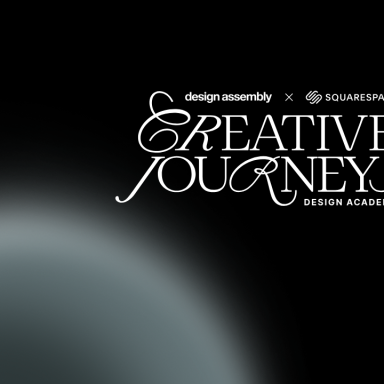Digital Sustainability with Kyoko Locussol
Ahead of our final Lunch & Learn workshop happening on 29 August, we briefly chatted with our speaker Kyoko Locussol, Senior Experience Designer at AKQA.

What inspired you to focus on digital sustainability, and why do you think it’s crucial for designers today?
I’m a multicultural creative – I’m half French, half Japanese, grew up in the US and now call Aotearoa New Zealand home. When I moved here, I started adopting more sustainable practices—things like buying second-hand clothes, cutting out meat, and biking more. While I was changing these habits and learning more about sustainability as a whole, I was shocked to find out that my digital habits – sending emails, posting on social media, browsing the web – were also contributing to my footprint, and the impact was huge.
I started learning more about sustainable web design practices and advocating for them at work. I believe it’s essential for designers and developers to consider how our work impacts the world around us. The more our world shifts online, the more critical it becomes for us, as creators of the digital world, to take responsibility for minimising our impact. We shape the digital experiences people engage with, and with that comes a responsibility to make sustainable design choices.
Can you share a project where implementing sustainable digital practices has made a significant impact?
Last year, I conducted a digital sustainability audit for the Wellington Zoo website. I analysed the 20 most visited pages, compiled all the CO2 emissions per page view and combined them with the page views over a one year period. I estimated that the top 20 pages emitted around 2 tonnes of CO2! I provided a series of recommendations to reduce these website related emissions, with a focus on optimising images. By implementing these changes, the Wellington Zoo was able to cut their digital emissions by 25%. This was a big moment for me – it showed how small, targeted adjustments in digital design can have a substantial environmental impact.

What common challenges do designers face when trying to incorporate sustainable practices into their digital projects, and how can your workshop help overcome them?
One of the biggest challenges is the lack of awareness around the environmental impact of digital products and experiences. It can also be hard to balance sustainable web design practices with compelling visual designs. Convincing clients to prioritise greener practices can be quite challenging.
The digital sustainability workshop will help designers (and non-designers!) visualise their digital ecosystems and identify areas for improvement. The session will also provide actionable strategies and tools to integrate digital sustainability practices into everyday life.

How do you see the future of digital design evolving in terms of sustainability, and what role will designers play in this shift?
I hope the future of digital design will evolve with sustainability at its core, with an emphasis on lightweight, efficient designs that minimise data usage and energy consumption. Designers will play an important role in this shift by implementing sustainable practices into every stage of the design process, from choosing eco-friendly hosting options to designing interfaces that minimise energy consumption.




